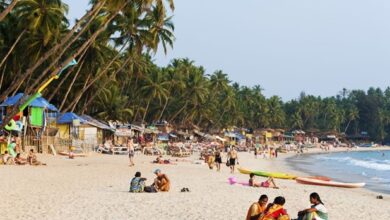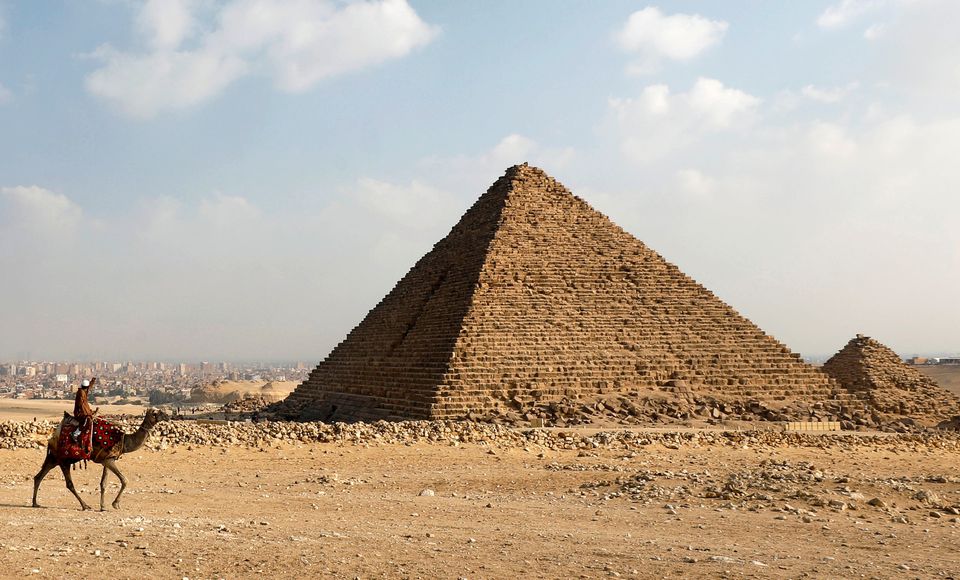Springtime is the ideal season for a visit to Aswan. The sun is high in the sky and the weather is perfect. Nevertheless, the hotspots and main commercial streets of the city appear quite desolate. All types of businesses suffered during the past year, but in economies that mostly revolve around tourism, like Aswan’s, the impact of the crisis is even more evident. Local tourism workers, renowned for their hospitality and good temper (as guidebooks recite), stand by the waterfront in their elegant, pure white galabeyas, trying to meet the expectations of the few visitors out there. But after the 10th khawaga who doesn’t stop for a felucca ride or to purchase souvenirs, their ultrawhite smiles turns into bitter grimaces. One can read in their eyes that they would gladly skip the performance.
—
“You know that here we call Cairo ‘Masr’?” says Ashraf, a felucca captain. “That is because we’ve always been living separate from the rest of the country and forgotten by the state.” He complained, “Honestly I have to say that with less (police) control since the revolution, there are also less problems. National authorities only care about the monuments here, as international organizations like UNESCO decide to get involved in protecting the heritage, but there is not much attention for the society.” The wooden boat cruises silently from the east bank toward the northern edge of Elephantine Island. Ducks, herons, eagles and vultures fly over the trees and exotic plants of the Kitchener’s botanic island in bloom. The captain and his crew seem to enjoy the ride as much as the passengers, mastering the felucca through the wind. Young boys are taught how to sail and drive motorboats since childhood, a useful skill both for tourism jobs and for self-sustenance in a place where most activities revolve around the river.
—
“Do you see this?” says Ahmed, a crewmember, pointing at the massive concrete pylons supporting the panoramic restaurant of the Movenpick hotel tower, 50 meters high above the riverbed. A disapproving expression appears in our faces. “We hate it as well,” he comments, “and now they are even going to enlarge it. It’s too late. The damage is done.” The extension of the hotel and resort is due to be completed in a couple of years, after the construction plan was put on hold in 2005 when Gamal Mubarak took over the area, claiming the land was the property of a company under his family’s control. Shortly after the revolution, the contested zone was returned to the previous owners and the project restarted at full pace. All the trees and plants in an area as big as a third of the island have been completely razed to make space for the construction site and for a new design of the green areas, with trees and plants brought in from elsewhere, or maybe even imported from abroad. Last year, however, a committee of residents, tourism operators, environmental and archeological experts and hotel owners managed to lobby to stop the addition of three additional levels on the original building, as they would clog the view of the mountains and the famous Tombs of the Nobles from the west bank.
—
A souq vendor convinces me to enter his shop by saying I will win a prize if I solve a riddle. I am almost sorry to solve it, as I may be his only paying client today. At the Labor and Immigration office, where my friends and I will apply for tourist visa extensions, there is a huge pile of garbage in front of the entrance. An employee asks, “Do you come from Cairo?” We nod. “And you are not scared to stay there?” The question sounds bizarre, uttered by an Egyptian to an expat. A number of Central Security Forces trucks are parked in front, where bored policemen try to kill the day inside their metal traps, hot as ovens, endlessly drinking tea and smoking. Listening to ringtones of Arab pop songs and staring at girls who pass by is their only entertainment. Since the revolution, their activities here have been drastically reduced, but they are still symbolically present and permanently visible in strategic public places.
—
The added value for Egyptian tourism lies in celebrating its natural and cultural heritage. The appeal of natural beauty spots like Aswan depends on keeping the landscape and natural ecosystem intact. But many locals disagree. Even though Elephantine Island is agricultural land, residents took advantage of last year’s lack of security to erect new buildings and tear down some existing ones. The urban geography of the island, with its traditional Nubian mud-brick houses, has changed dramatically. “The land is divided amongst the Nubian families whose village survived the floods after the High Dam was closed in the 60s.” said Mustafa, owner of a Nubian-style guesthouse. “It’s easy to criticize Nubians for not protecting their heritage, while big corporations and businessmen linked to the government systematically destroy natural resources and territories.”
This piece was originally published in Egypt Independent’s weekly print edition.




